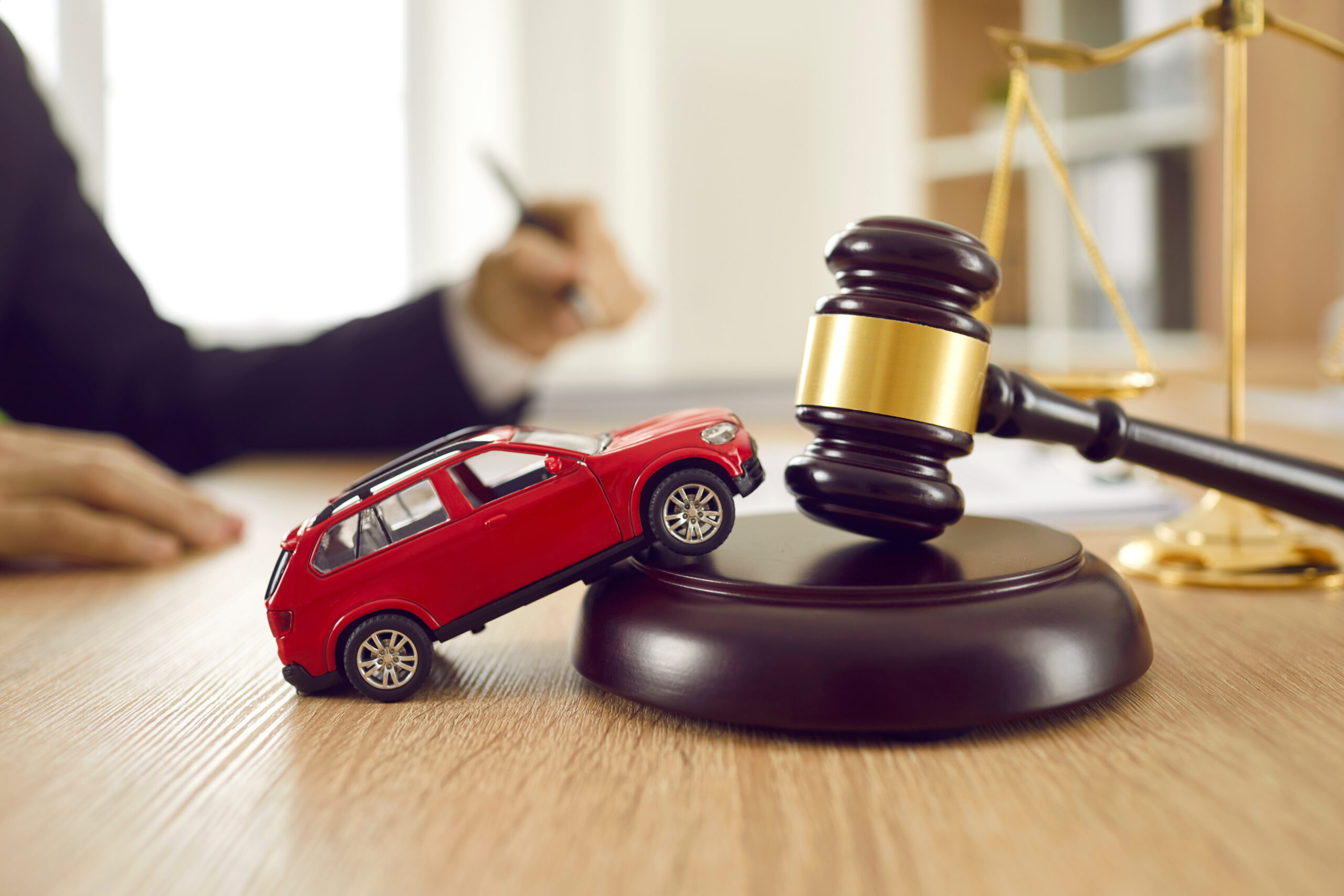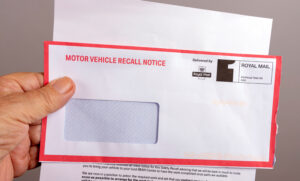
Hyundai and Kia face new class actions over faulty engines in Australia
Hyundai and Kia are facing two class action lawsuits in Australia over allegations that the car manufacturers sold cars with potentially faulty engines that breached Australian consumer law. The lawsuits come after a series of recalls and safety concerns in Australia over the past few years.
On 15 February 2023, law firm Johnson Winter Slattery filed lawsuits against Hyundai and Kia, claiming that vehicles sold since 2011 were fitted with defective engines that violate Australian consumer law.
The new lawsuit comes after separate class actions were filed against Hyundai and Kia by Maurice Blackburn Lawyers in the Victorian Supreme Court in January over defective anti-lock braking systems (ABS). The lead plaintiff in this case, Anne-Maree Johnston, was grateful to be alive after her Hyundai caught fire 20 minutes after she parked it in her garage.
“It could have been a fatal disaster - we were very lucky to have noticed smoke coming into the house from the garage,” Ms Johnston said. “Had we not caught it early, it’s almost certain the whole house would have gone up.”

(Photo: Emergency services responding Anne-Maree Johnston's vehicle fire)
After repeatedly trying to get answers from Hyundai, the mother of two turned to Handle My Complaint for assistance. Ms Johnston is one of hundreds of Hyundai owners Handle My Complaint has been helping with engine and ABS issues.
Handle My Complaint had been working closely for 12 months with consumers who have experienced a range of issues with Hyundai engines, including those that lost power at speed without warning. “We have long been concerned about the risk to drivers and have been advocating on behalf of consumers to the manufacturer and the relevant government authorities,” said Ms Ucukalo, CEO of Handle My Complaint.
What are the allegations against Hyundai and Kia?
The lawsuit covers several models, and the claim alleges that affected vehicles have experienced problems such as:
-
- knocking or tapping sounds;
- internal damage to the engine;
- increased oil and/or fuel consumption;
- sudden loss of power (including while driving) and engine failure;
- the emission of smoke from the engine compartment; and/or
- in some cases, fire.
The suit also asserts that Hyundai and Kia had knowledge of the engine issues since at least 2015 but continued to sell the affected vehicles in Australia without informing consumers of the issues.
The claim further alleges that Hyundai and Kia engaged in misleading or deceptive conduct in advertising and promoting the affected vehicles as being of good quality, reliable, durable, fit for purpose, and safe. The class action seeks damages and compensation for all affected owners.
Who is eligible to join the class actions?
If you own one of the affected vehicles, you may be eligible to join the class action regardless of whether you bought or leased the car new or second-hand after 1 January 2011. It doesn't matter if you still own the vehicle or if you have already sold it. You may be eligible even if you didn't experience any of the engine faults mentioned in the lawsuit, or if your vehicle or its engine has already been repaired or replaced by Hyundai or Kia or someone else, under warranty or otherwise.
All individuals who acquired an affected vehicle and satisfy the relevant criteria are automatically group members, unless they choose to opt out of the class action. Potential group members are encouraged to register with the class action, as this will make it easier for the legal team to contact them and provide updates and notices relating to the case. Additionally, registering will ensure that the contact details of potential group members are on record in case there is an outcome, such as a settlement or a court judgment, that results in damages being awarded to group members.
Which vehicles are included in the class actions?
The affected Hyundai vehicles include 4-cylinder petrol-engine variants of the Theta II MPI and GDI, Gamma GDI and Nu GDI engines of the following models (and model years):
| Model range | Series | Engine size and type | Model year (MY)* |
| Accent (hatch and sedan) | RB | 1.6L Gamma II GDI | 2013-2019 |
| i30 (hatch and wagon) | GD | 1.6L Gamma II GDI | 2012-2016 |
| i30 (hatch) | GD and PD | 2.0L Nu GDI | 2014-2022 |
| i30 SR and N Line (hatch) | PD | 1.6L Gamma II GDI Turbo | 2018-2022 |
| i30 N (hatch, sedan and coupé) | PD and CN7 | 2.0L Theta II GDI Turbo | 2018-2023 |
| Elantra SR Turbo and Sport (sedan) | AD | 1.6L Gamma II GDI Turbo | 2017-2020 |
| i40 (sedan and wagon) | VF | 2.0L Nu GDI | 2011-2018 |
| Sonata (sedan) | NF | 2.4L Theta II MPI | 2009 |
| Sonata (sedan) | LF | 2.4L Theta II GDI | 2014-2019 |
| Sonata (sedan) | LF | 2.0L Theta II GDI Turbo | 2014-2019 |
| i45 (sedan) | YF | 2.4L Theta II GDI | 2010-2011 |
| i45 (sedan) | YF | 2.0L Theta II MPI | 2011 |
| Veloster (hatch) | FS | 1.6L Gamma II GDI | 2011-2017 |
| Veloster (hatch) | FS and JS | 1.6L Gamma II GDI Turbo | 2012-2020 |
| Kona (SUV) | OS | 1.6L Gamma II GDI Turbo | 2018-2020 |
| ix35 (SUV) | LM | 2.0L Theta II MPI | 2010-2013 |
| ix35 (SUV) | LM | 2.4L Theta II MPI | 2010-2013 |
| ix35 (SUV) | LM | 2.0L Nu GDI | 2013-2015 |
| ix35 (SUV) | LM | 2.4L Theta II GDI | 2013-2015 |
| Tucson (SUV) | TL | 2.0L Nu GDI | 2015-2021 |
| Tucson (SUV) | TL | 1.6L Gamma II GDI Turbo | 2015-2021 |
| Santa Fe (SUV) | DM and TM | 2.4L Theta II GDI | 2013-2020 |
| iLoad (van) | TQ-V | 2.4L Theta II MPI | 2008-2017 |
| iMax (people mover) | TQ-W | 2.4L Theta II MPI | 2008-2017 |
*Model year may be different to the year of release or sale
The affected Kia vehicles include 4-cylinder petrol-engined variants of the Theta II MPI and GDI, Gamma GDI and Nu GDI engines of the following models (and model years):
| Model range | Series | Engine size and type | Model year (MY)* |
| Rio (hatch and sedan) | UB | 1.6L Gamma II GDI | 2012-2016 |
| Cerato (hatch, sedan) and Cerato Koup (coupé) | TD | 2.0L Theta II MPI | 2009-2013 |
| Cerato (hatch, sedan) and Cerato Koup (coupé) | YD | 2.0L Nu GDI | 2013-2016 |
| Cerato Koup Turbo (coupé) | YD | 1.6L Gamma II GDI Turbo | 2014-2016 |
| Cerato GT (hatch and sedan) | BD | 1.6L Gamma II GDI Turbo | 2019-2023 |
| Optima (sedan) | TF and JF | 2.4L Theta II GDI | 2011-2020 |
| Optima GT (sedan) | JF | 2.0L Theta II GDI Turbo | 2016-2020 |
| Stinger (sedan) | CK | 2.0L Theta II GDI Turbo | 2018-2023 |
| pro_cee’d (hatch) | JD | 1.6L Gamma II GDI Turbo | 2014-2015 |
| Seltos (SUV) | SP2 | 1.6L Gamma II GDI Turbo | 2020-2023 |
| Sportage (SUV) | SL | 2.0L Theta II MPI | 2010-2013 |
| Sportage (SUV) | SL | 2.4L Theta II MPI | 2010-2013 |
| Sportage (SUV) | SL | 2.0L Nu GDI | 2014-2015 |
| Sportage (SUV) | QL | 2.4L Theta II GDI | 2016-2021 |
| Sorento (SUV) | XM | 2.4L Theta II MPI | 2010-2012 |
| Rondo (people mover) | RP | 2.0L Nu GDI | 2014-2018 |
*Model year may be different to the year of release or sale
What outcome are the class actions seeking?
The class actions are seeking financial compensation for affected vehicle owners who have incurred out-of-pocket expenses related to the engine faults in their cars. This includes expenses such as the cost of replacing engines, additional servicing, or rental cars. It's important to note that the lawsuit is seeking compensation and not repair or replacement of the affected vehicles.
If the class action is successful, legal fees will only be deducted from the compensation awarded to group members. Therefore, group members will not be responsible for any legal fees if the lawsuit is unsuccessful. The goal of the class action is to ensure that affected vehicle owners are fairly compensated for the financial losses they have suffered due to the engine defects.
Previous recalls and safety concerns for Hyundai and Kia vehicles

Hyundai and Kia are well-established car manufacturers that are popular in Australia. In recent years, the carmakers have had to deal with multiple recalls and safety concerns in Australia. In 2019, Hyundai recalled 13,000 vehicles in Australia due to a potential engine fault that could cause cars to stall while driving. In 2022 Kia recalled over 4,000 of its 2019-2020 Kia Seltos cars due to a potential fault with the 2.0-litre engine in S, Sport and Sport+ models that could cause an engine failure and the vehicle to stall.
The Australian government is responsible for ensuring that car manufacturers comply with safety standards and consumer laws. The ACCC has the power to enforce consumer protection laws and investigate and prosecute businesses that breach the law.
However, some consumers have expressed frustration with the ACCC's handling of complaints against car manufacturers. This is where Handle My Complaint comes in. We work to advocate for consumers and help them seek compensation when car manufacturers fail to meet their legal obligations.
“We have raised these significant breaches of Australian Consumer Law with the ACCC as our clients have been frustrated at every turn trying to get someone to take their concerns seriously,” said Ms Ucukalo.
Importance of holding car manufacturers accountable
The class action lawsuits against Hyundai and Kia are significant because they highlight the importance of holding car manufacturers accountable for their actions. When consumers purchase a car, they expect it to be safe, reliable, and fit for purpose. If a car manufacturer breaches consumer laws or fails to deliver on these expectations, they must be held accountable.
The lawsuits also demonstrate the importance of consumers speaking out when they encounter issues. “Hyundai either ignored or denied warranty claims for so many of our clients on spurious or unreasonable grounds, including for not completing scheduled services during Covid restrictions,” Ms Ucukalo said.
Furthermore, if the class action is successful, it could have a significant impact on the reputation and financial standing of Hyundai and Kia in Australia. The potential compensation payouts could be substantial, and the negative publicity generated by the lawsuits could deter potential customers from purchasing their vehicles.
Action against Hyundai and Kia from overseas
Hyundai and Kia have faced similar legal action in other countries over the past few years. In the United States, Hyundai and Kia have been ordered to pay more than $750 million in penalties and settlements over allegations of engine defects. The US National Highway Traffic Safety Administration (NHTSA) also launched investigations into the companies, resulting in the recall of over 1.7 million vehicles in the US.
In South Korea, the government fined Hyundai and Kia around $187 million for delaying the recall of vehicles with engine defects. The companies also faced a criminal investigation in South Korea over the issue.

Response from Hyundai and Kia
Hyundai and Kia have not responded to this latest class action. However, Hyundai has previously defended themselves against the allegations in Australia, stating “the safety of our customers is and has always been our number one priority”.
The company issued a statement to Channel 9’s The Today Show saying, "At Hyundai Motor Company Australia, the safety of our customers is and has always been our number one priority. That is why any incident that has the potential to compromise that safety, is taken extremely seriously. We undertake voluntary recalls of vehicles in accordance with our obligations under the Australian Consumer Law and Road Vehicle Standards Act. Vehicle recalls are a swift and effective means of replacing any component that may have a fault, at zero cost to the owner."
The company added that it will “continue to resolve any issues for owners as quickly as possible, regardless whether they are related to recalls or not”.
The court has given both manufacturers until 19 May 2023 to lodge their defence.
It remains to be seen how the lawsuits against Hyundai and Kia will play out in Australia. If the class actions are successful, they could set a precedent for similar legal action against car manufacturers in Australia and around the world. The outcome could also lead to changes in the way car manufacturers deal with defects and recalls, potentially leading to improved safety and reliability for consumers.
Next steps for owners
With potentially hundreds of thousands of affected vehicles sold in Australia, the lawsuits could have significant ramifications for the companies and their customers. It remains to be seen how the legal proceedings will unfold, but it is clear that the issue of faulty engines in Hyundai and Kia vehicles will continue to be a major concern for Australian consumers and the automotive industry as a whole.
In the meantime, affected owners of Hyundai and Kia vehicles in Australia can join the class actions and potentially receive compensation for any damages they have incurred.
Ms Ucukalo also urges owners of affected Hyundai and Kia vehicles to lodge their complaint with Handle My Complaint. "Our system enables the collection of data that builds a pattern, making it harder for companies to ignore consumers," she said.
Watch Jo's segment on Channel 7News about this serious issue and get informed.






